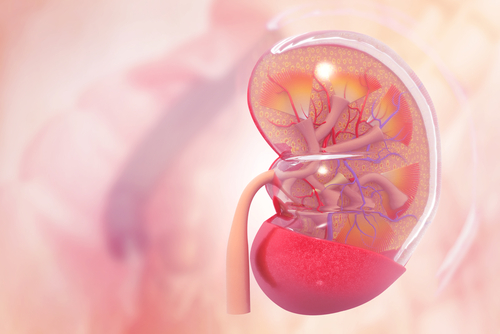Abstract on How Avacopan Affects Kidney Function Makes Top 10 List
Written by |

Treatment with ChemoCentryx’s investigational therapy avacopan can improve kidney function in people with ANCA-associated vasculitis to a greater extent than steroids, especially among individuals with advanced kidney disease, clinical trial data show.
The data were presented at the annual meeting of the European Renal Association – European Dialysis and Transplant Association (ERA-EDTA), held earlier this month in Germany.
The presentation, “The Effect of Avacopan, a Complement C5a Receptor Inhibitor, on Kidney Function in Patients with ANCA-Associated Vasculitis with Renal Disease,” was chosen as one of the “10 best” abstracts of the congress by the ERA-EDTA’s Paper Selection Committee, according to a press release from ChemoCentryx.
AAV is characterized by inflammation in small blood vessels, which can cause damage to organs. The kidneys, which have many small blood vessels, are especially vulnerable.
Avacopan is an investigational oral medication that works by blocking the activity of part of the immune system called the complement cascade, which is over-active in AAV.
At the meeting, a team led by researchers at ChemoCentryx shared data from the ADVOCATE Phase 3 clinical trial (NCT02994927), which enrolled 331 participants with AAV, including 265 who had kidney disease upon entering the study.
Participants were randomly assigned to treatment with avacopan or with prednisone (an anti-inflammatory steroid medication), for 52 weeks, or about a year. In both treatment arms, patients also received either rituximab or cyclophosphamide, followed by azathioprine.
Full results from the trial were published earlier this year, and indicated that the investigational treatment could increase sustained remission rates and improve kidney function. At the ERA-EDTA meeting, researchers highlighted the treatment’s effect on kidney function.
The kidneys are responsible for filtering the blood, removing waste and toxins to be disposed in the urine. A standard measure of kidney function is the estimated glomerular filtration rate, or eGFR — this metric basically measures the rate at which blood is filtered in the kidneys. eGFR is measured in units of mL/min/1.73 m2. A higher value indicates better kidney function.
Results showed that, among ADVOCATE participants with kidney disease given prednisone, the average eGFR increased by 2.9 after 26 weeks, and by 4.1 after 52 weeks. For participants given avacopan, the increase was significantly higher at both time points: 5.8 after 26 weeks, and 7.3 after 52 weeks.
The improvement was most prominent among participants with stage 4 kidney disease, which is the most severe stage of kidney disease before kidney failure (when the kidneys are unable to function adequately). Among these participants, eGFR increased by 13.7 in the avocopan group and by 8.2 in the prednisone group, after 52 weeks.
In addition, urine albumin-to-creatinine ratio (UACR) — another measure of kidney function, based on levels of certain proteins in the urine — decreased more rapidly among participants given avacopan than prednisone, indicating a faster improvement in kidney function. The difference between the two medications was statistically significant at weeks three and four. By week 52, both groups showed a similar decrease in UACR from the start of the study.
Another urine-based measure of kidney function, the MCP-1 (monocyte chemoattractant protein-1) to creatinine ratio, followed a similar trend.
“Treatment with avacopan in patients with ANCA-associated vasculitis with renal disease led to greater recovery in eGFR when compared to standard prednisone therapy, especially in patients with Stage 4 kidney disease,” the researchers concluded.





